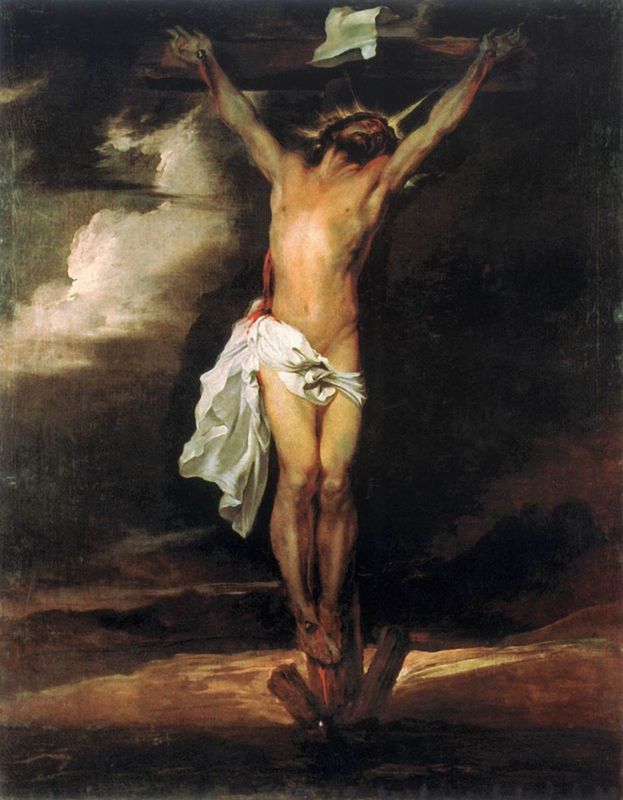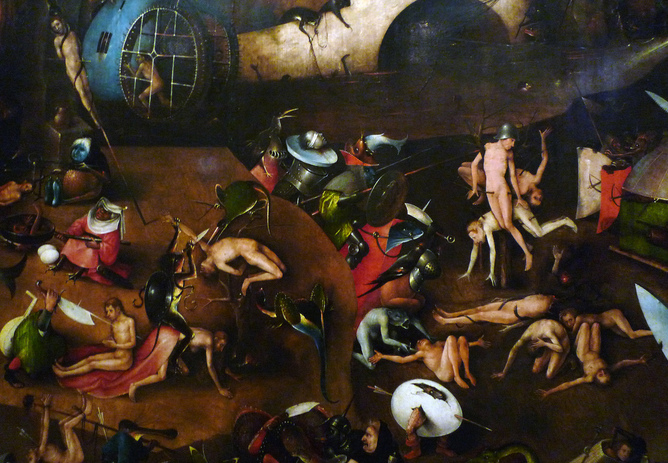With this song, Dylan slips into the driving Chicago blues style he’s often favored for his hard-rocking numbers. It’s a tight, forceful arrangement, highlighting the brilliant ensemble playing of his musicians on this album.
The lyric is in the “desperate pilgrimage” vein of many of his late-career songs. It opens with the singer walking off into the desert, leaving his past behind and asking others to leave him alone out in the wilderness. The pilgrimage described is explicitly religious and Christian.
The recurring refrain is, “If I can’t work up to you, you’ll surely have to work down to me someday.” It’s appropriated from an old Mississippi Sheiks song, where it’s addressed to a woman, but here it has a different inflection, referring slyly to the Christian concept of Grace through the incarnation of Christ.
The idea is that man is so fallen and sinful that he can never acquit himself before God, so God had to descend to the level of men, take human form and in that form atone for human frailty. In traditional theology, this became an accomplished fact with Jesus’s death on the cross, but it’s something still in process for Dylan, whose Christianity is ever eccentric.
Dylan is still awaiting the incarnation and atonement, still awaiting redemption by the Blood of the Lamb — but his faith in it is unshakeable, defiant, desperate. He’s betting everything on it. It might be argued that this view of things has a theological elegance and power, and practical truth, greater than the supposed assurance of seeing redemption as already signed, sealed, delivered.
Dylan stands by the cross in hope, not by the empty tomb in triumph. In any case, his faith is not a matter of comfort or consolation to him — it is a hard, long and narrow way. He seems to be wrestling with doubt here, moving on without assurances — but committed to the journey. One might relate it to the great prayer a follower addressed to Jesus — “O, Lord, I believe . . . help thou my unbelief.” This poignant cry strikes me as sounder, psychologically and experientially, than any profession of adamantine faith.
The instability of Dylan’s faith suddenly sends him careening off, lyrically, into images of apocalyptic violence, then into images of lustful desire, but the song concludes this way — “I heard a voice at the dusk of day saying be gentle, brother, be gentle and pray.” He’s back on the long and narrow way of the carpenter from Nazareth, the prince of peace — and somehow that climactic return feels all the more convincing and moving for the detour Dylan took earlier in the song.
He’s not selling his religion in this song — if anything he’s warning people away from it. He’s not mapping out a destination, much less claiming to have arrived at it. But then again, Jesus never said, “I am the destination.” He said, “I am the way.” Dylan is talking, with devastating honesty, about that way.
Dylan is by far the greatest Christian poet of our time — not that he’s had a lot of competition for the title. Perhaps it wouldn’t be too much to suggest, as well, that a lot of people who call themselves Christians today could learn more from Dylan’s solitary, harrowing journey than from the “fellowship” they find in their warm and attractive and securely planted churches.
Jesus, it must be remembered, once he received his calling, lived his life on the road, and maybe that’s always the best place to find him.
Back to the Tempest track list page.






“O I had no feet because no shoes, I was ‘barefooted’ (as the saying goes) and far from stomping down on big trail-singin steps as I bash along tra la tra la I could hardly even mincingly place them the soles were so thin and the rocks so sudden some of them with a sharp bruise — A John Bunyan morning, it was all I could do to keep my mind on other things.”
(Jack Kerouac, “Desolation Angels”, p. 82)
Yes — “the rocks so sudden some of them with a sharp bruise”. On the road, where we all are, whether we know it or not.
Some truly insightful perspective on the song. Thank you very much! I hope to cover each song on my site eventually. God bless you!
Thanks, Steve!